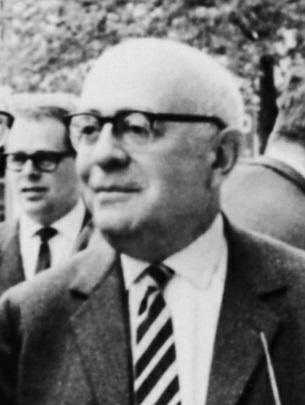Theodor Adorno słynne cytaty
„Doświadczenie artystyczne jest autonomiczne jedynie tam, gdzie odrzuca delektujący się smak.”
Teoria estetyczna
Źródło: s. 25, 625
Teoria estetyczna
Źródło: s. 242
Theodor Adorno cytaty
„Pisanie wierszy po Oświęcimiu jest barbarzyństwem.”
Źródło: Prismen. Kulturkritik und Gesselschaft (1951)
Minima Moralia, Refleksje z poharatanego życia
Teoria estetyczna
Źródło: s. 551
Źródło: Dialektyka negatywna, PWN, Warszawa 1986, tłum. Krystyna Krzemieniowa.
Ale przez kodyfikację, zapisaną w międzynarodowej deklaracji praw człowieka, to, co nie do wypowiedzenia, zostało zarazem – w imię protestu – uwspółmiernione. Przez podniesienie do rangi pojęcia uznana zostaje niejako możliwość: instytucja, którą się obkłada zakazem, odrzuca, dyskutuje.
Minima Moralia, Refleksje z poharatanego życia
Theodor Adorno: Cytaty po angielsku
Die fast unlösbare Aufgabe besteht darin, weder von der Macht der anderen, noch von der eigenen Ohnmacht sich dumm machen zu lassen.
E. Jephcott, trans. (1974), § 34
Minima Moralia (1951)
Źródło: Lectures on Negative Dialectics (1965-66), p. 18
Sie möchte formal und material ebenjener Gestalt geistiger Freiheit helfen, die in den herrschenden philosophischen Richtungen keine Stel1e hat.
Źródło: Wozu noch Philosophie? [Why still philosophy?] (1963), p. 13
Źródło: Lectures on Negative Dialectics (1965-66), p. 20
Die Berufung auf Wissenschaft, auf ihre Spielregeln, auf die Alleingültigkeit der Methoden, zu denen sie sich entwickelte, ist zur Kontrollinstanz geworden, die den freien, ungegängelten, nicht schon dressierten Gedanken ahndet und vom Geist nichts duldet als das methodologisch Approbierte. Wissenscahaft,das Medium von Autonomie, ist in einen Apparat der Heteronomie ausgeartet.
Źródło: Wozu noch Philosophie? [Why still philosophy?] (1963), p. 12
“Was bedeutet Aufarbeitung der Vergangenheit” (1959)
Źródło: On the Fetish Character in Music and the Regression of Listening (1938), p. 279
Negative Dialektik ... handelt sich um den Entwurf einer Philosophie, die nicht den Begriff der Identität von Sein und Denken voraussetzt und auch nicht in ihm terminiert, sondern die gerade das Gegenteil, also das Auseinanderweisen von Begriff und Sache, von Subjekt und Objekt, und ihre Unversöhntheit, artikulieren will.
Źródło: Lectures on Negative Dialectics (1965-66), p. 6
“The dressing up and puffing up of the individual erases the lineaments of protest.”
Źródło: On the Fetish Character in Music and the Regression of Listening (1938), p. 283
Źródło: Wozu noch Philosophie? [Why still philosophy?] (1963), p. 6
Źródło: Lectures on Negative Dialectics (1965-66), p. 169
Perennial fashion — Jazz, as quoted in The Sociology of Rock (1978) by Simon Frith
The Authoritarian Personality (1950), p. 976, co-written with Else Frenkel-Brunswik, Daniel Levinson, and Nevitt Sanford
Perennial fashion — Jazz, as quoted in The Sociology of Rock (1978) by Simon Frith,
“Words of the jargon sound as if they said something higher than what they mean.”
Źródło: Jargon der Eigentlichkeit [Jargon of Authenticity] (1964), p. 9
Źródło: Lectures on Negative Dialectics (1965-66), p. 16
"Perennial Fashion — Jazz" (1978), Prisms, p. 129, as translated by Samuel Weber and Shierry Weber (1981)
Falsch am Positivismus ist, daß er die nun einmal gegebene Arbeitsteilung, die der Wissenschaften von der gesellschaftlichen Praxis und die innerhalb der Wissenschaft, als Maß des Wahren supponiert und keine Theorie erlaubt, welche die Arbeitsteilung selbst als abgeleitet, vermittelt durchsichtig machen, ihrer falschen Autorität entkleiden könnte.
Źródło: Wozu noch Philosophie? [Why still philosophy?] (1963), p. 10
as quoted in The Origin of Negative Dialectics (Free Press: 1977), p. 187
Źródło: Lectures on Negative Dialectics (1965-66), p. 18
Denken, das offen, konsequent und auf dem Stand vorwärtsgetriebener Erkenntnis den Objekten sich zuwendet, ist diesen gegenüber frei auch derart, daß es sich nicht vom organisierten Wissen Regeln vorschreiben läßt. Es kehrt den Inbegriff der in ihm akkumulierten Erfahrung den Gegenständen zu, zerreißt das gesel1schaftliche Gespinst, das sie verbirgt, und gewahrt sie neu.
Źródło: Wozu noch Philosophie? [Why still philosophy?] (1963), p. 13
Was Jargon sei und was nicht, darüber entscheidet, ob das Wort in dem Tonfall geschrieben ist, in dem es sich als transzendent gegenüber der eigenen Bedeutung setzt; ob die einzelnen Worte aufgeladen werden auf Kosten von Satz, Urteil, Gedachtem. Demnach wäre der Charakter des Jargons überaus formal: er sorgt dafür, daß, was er möchte, in weitem Maß ohne Rücksicht auf den Inhalt der Worte gespürt und akzeptiert wird durch ihren Vortrag.
Źródło: Jargon der Eigentlichkeit [Jargon of Authenticity] (1964), p. 8
Philosophy of Modern Music (1973) as translated by Anne G. Mitchell and Wesley V. Blomster
Źródło: On the Fetish Character in Music and the Regression of Listening (1938), p. 290
Wer will es schließlich selbst den allerfreiesten Geistern verübeln, wenn sie nicht mehr für eine imaginäre Nachwelt schreiben, deren Zutraulichkeit die der Zeitgenossen womöglich noch überbietet, sondern einzig für den toten Gott?
E. Jephcott, trans. (1974), § 133
Minima Moralia (1951)
Źródło: Lectures on Negative Dialectics (1965-66), p. 18
“Writing poetry after Auschwitz is barbaric.”
[N]ach Auschwitz ein Gedicht zu schreiben, ist barbarisch...
Full quote: Kulturkritik findet sich der letzten Stufe der Dialektik von Kultur und Barbarei gegenüber: nach Auschwitz ein Gedicht zu schreiben, ist barbarisch, und das frißt auch die Erkenntnis an, die ausspricht, warum es unmöglich ward, heute Gedichte zu schreiben.
Kulturkritik und Gesellschaft [Cultural Criticism and Society] (1951); this quote is more famously known in the forms "No poetry after Auschwitz" or "There can be no poetry after Auschwitz." Sometimes a more specific proscription is made, such as "No lyric poetry after Auschwitz." The influence of the underlying idea can be seen in such derivative statements as "No history after Auschwitz."
“Philosophy … must not bargain away anything of the emphatic concept of truth.”
Źródło: Wozu noch Philosophie? [Why still philosophy?] (1963), p. 7
Źródło: On the Fetish Character in Music and the Regression of Listening (1938), p. 271
